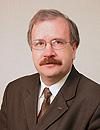References
- Nokhrin E. V. Problems of Implementation of Open Education. Pedagogicheskoe obrazovanie v Rossii [Pedagogical Education in Russia]. 2017. No. 4. P. 6–10. (In Russ.)
- Nazarov A. I., Ershova N. Y., Prokhorova E. I., Ekimova T. A. Network form development to implement life-long education. European proceedings of social and behavioural sciences (EPSBS). 2020. No. 90. P. 930–946. DOI: 10.15405/epsbs.2020.10.03.110
- Titova S. V. Massive open online courses in Russian education: myth or reality? Vestnik Moskovskogo universiteta. Ser. 19 «Lingvistika i mezhkul'turnaya kommunikatsiya» [Moscow University Bulletin. Series 19 «Linguistics and Intercultural Communication»]. 2016. No. 1. P. 53–65. (In Russ.)
- Nazarov A. I., Moshkina E. V., Platonov A. A, Prokhorova E. I. Use of Network Educational Modules in Physics to Form Competence Scope of Various Groupes of University Students. Fizicheskoe obrazovanie v vuzakh [Physics in Higher Education]. 2017. Vol. 23. No. 4. P. 125–140. (In Russ.)
- Babaeva M. A. Analysis of the Results of the Final Testing in the MOOCs of the 'Concept of Modern Natural Science' on the National Open Education Platform. Materialy XV Mezhdunarodnoy konferentsii «Fizika v sisteme sovremennogo obrazovaniya» (FSSO-2019) [Proceedings of the XV International Conference «Physics in the System of Modern Education» (FSSO–2019), June 3–6, 2019]. Part. 2. Saint-Petersburg, 2019. P. 308–313. (In Russ.)
- Demidova M. Y, Gribov V. A. Analytical Report on the USE 2023 Results in Physics. Pedagogicheskie izmereniya [Educational Measurements]. 2023. No. 3. P. 53–75.
- PhET Interactive Simulations. University of Colorado Boulder [Electronic resource]. Electron. dan. URL: https://phet.colorado.edu/en/simulations/filter?locale=ru&subjects=physics&levels=university,high-school&type=html (date of acсess 08.04.2024).
- Gervidas V. I. Lecture demonstrations in physics [Electronic resource]. Ofitsial'nyy kanal NIYaU MIFI [The official channel of NRNU MEPHI]. Electron. dan. URL: https://www.youtube.com/c/NRNUMEPhI/playlists (date of acсess 08.04.2024). (In Russ.)
- Alekseeva O. S., Chirtsov A. S., Chirtsov T. A., Chengxun Y., Nicolsky D. Introduction of the System of Digital Adaptive Support of Physics Teaching in the Practice of Engineering Education [Electronic resource]. Materialy XVII Mezhdunarodnoy konferentsii «Fizika v sisteme sovremennogo obrazovaniya» (FSSO-2023) [Proceedings of the XVII International Conference «Physics in the System of Modern Education» (FSSO–2023), June 27–30, 2023]. Saint-Petersburg, 2023. P. 4–12. Electron. dan. URL: https://psme.herzen.spb.ru/proceedings/psme-2023.pdf (date of access 08.04.2024). (In Russ.)
- Radulović B., Dorocki M., Ninković S. O. [et al.]. The Effects of Blended Learning Appoach on Student Motivation for Learning Physics. Journal of Baltic Science Education. 2023. Vol. 22, No. 1. P. 73–82. DOI: 10.33225/jbse/23.22.73
- Syifa A., Putra N. M., Darsono T., Rohim A. M. Changes in Students' Cognitive Structure on the Concept of Diffraction and Light Interference Using PhET Virtual Simulation. Physics Education Research Journal. 2023. Vol. 5. No. 1. P. 29–34. DOI: 10.21580/perj.2023.5.1.13658
- Kazakova E. L., Moshkina E. V., Sergeeva O. V. Analysis of the formation of students’ motivation to study physics in modern conditions. Otkrytoe obrazovanie [Open Education]. 2022. Vol. 26. No. 2. P. 19–29. (In Russ.) DOI: 10.21686/1818-4243-2022-4-19-29
- Alexandrova N. V., Ivanova N. A., Kalashnikov N. P. [et al.]. Comparison of the Input Control Results in Physics Among the First-Year Students of NRNU MEPHI in 2019‒2021. Fizicheskoe obrazovanie v vuzakh [Physics in Higher Education]. 2022. Vol. 28. No. 2. P. 42–51. (In Russ.)












